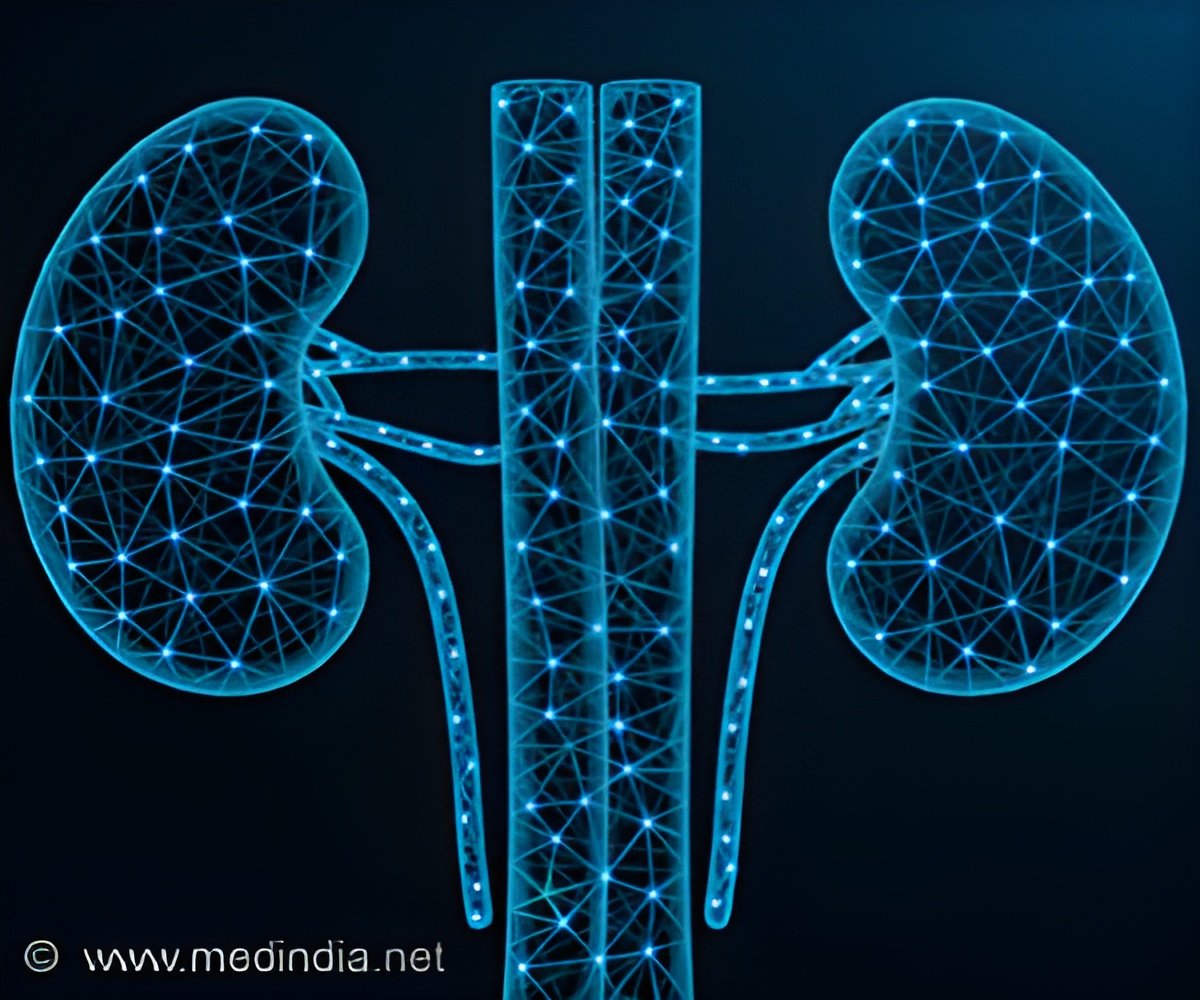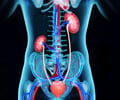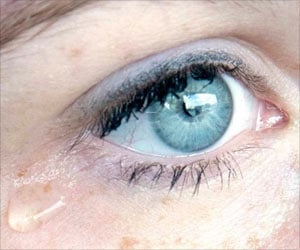In veterans of African ancestry who were hospitalized with COVID-19, genetic variants were found to boost the risk of acute kidney injury and death.

‘Acute kidney injury (AKI) — sudden kidney failure — has been a common complication in patients hospitalized for COVID-19, with higher rates of AKI and death in patients of African ancestry.’





The findings may explain some health disparities associated with COVID-19 and could guide efforts to identify individuals who are at increased risk of acute kidney injury and death and offer personalized treatments, said Adriana Hung, MD, MPH, associate professor of Medicine in the Division of Nephrology and Hypertension and lead author of the paper. “We think it will be very informative to understand if people have these gene variants that put them at increased risk to make decisions about tailoring therapy for them,” Hung said.
“We wanted to understand what was behind this increased risk, besides being critically ill,” she added.
The researchers knew that variants in the gene APOL1 (apolipoprotein L1), found in people of African ancestry, are associated with chronic kidney disease. More than 1 in 10 individuals of African ancestry have two APOL1 variants, which appear to have evolved to protect against infection by the parasites that cause African sleeping sickness. APOL1 variants contribute to health disparities in chronic kidney disease among people with African ancestry.
Hung and her colleagues wondered if APOL1 risk variants are associated with AKI in Black patients hospitalized with COVID-19.
They probed this association using data from the Million Veteran Program (MVP), a national program to study how genes, lifestyle and military exposures affect health and illness. The MVP has enrolled more than 850,000 diverse veterans over the last 10 years, making it the largest DNA biobank in the world.
The team’s retrospective study included 990 MVP participants with African ancestry who were hospitalized with COVID-19 between March 2020 and January 2021. The researchers used clinical laboratory data to assess acute kidney injury in the patients, and they adjusted the analysis to account for preexisting diseases, medications and other risk factors for AKI.
Of the 990 MVP participants from 63 different hospitals, 12.6% had two APOL1 variants (high-risk group). Patients in this group were twice as likely to suffer severe AKI and death, compared to participants with only one or no APOL1 risk variants. This increased risk persisted even for high-risk patients who had normal kidney function before hospitalization.
“Although case studies have reported an association of APOL1 mutations and FSGS (a rare disease that can cause kidney damage or failure), our study provides for the first time information about the association of APOL1 with acute kidney injury in a large cohort,” Hung said.
Hung noted that medications targeting APOL1 are currently being tested and might offer personalized treatment options for patients with high-risk variants.
“We also wonder if these findings may be extrapolated to individuals with APOL1 high-risk variants who are critically ill for other reasons,” she said.
Using genetic information to inform clinical care is a goal of VUMC’s precision medicine initiatives, said Alexander Bick, MD, PhD, assistant professor of Medicine in the Division of Genetic Medicine and a co-author of the current report.
“Our goal is to bring more genetic data into the electronic health record, so that it’s available at clinicians’ fingertips,” Bick said. “This study is another example of how genetic information is going to be useful; it’s just the beginning for bringing this gene mutation into the hospital setting,” Bick said.
The study population was 91.4% male, representing a limitation of the MVP, which is striving to increase its female participants, Hung said.
Edward Siew, MD, MSCI, associate professor of Medicine in the Division of Nephrology and Hypertension and a senior author of the paper, noted that having a better understanding of the molecular mechanisms that may explain these findings and predispose to human AKI in general is an important future direction.
“There are novel biobanking efforts that are working to obtain tissue and biosamples from patients with AKI, which is an important early step toward this goal,” Siew said.
Key members of the Vanderbilt research team included Zhihong Yu, PhD, Ran Tao, PhD, Hua-Chang Chen, PhD, Otis Wilson, Robert Greevy, PhD, Cecilia Chung, MD, MPH, Elvis Akwo, MD, PhD, Michael Matheny, MD, MS, MPH, and Cassianne Robinson-Cohen, PhD.
This research was supported by the Veterans Health Administration MVP COVID-19 Science Program and a VA Clinical Science Research and Development investigator grant to Hung to study the Genetics of Kidney Disease and Hypertension. Siew and Matheny were supported by a VA Health Services Research and Development grant.
Source-Eurekalert















